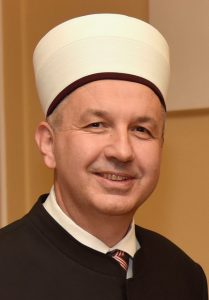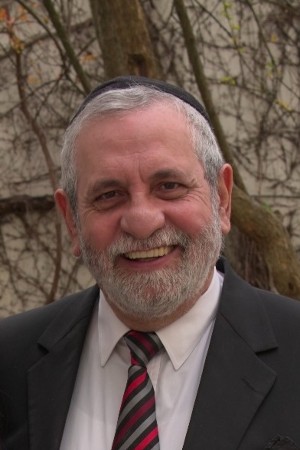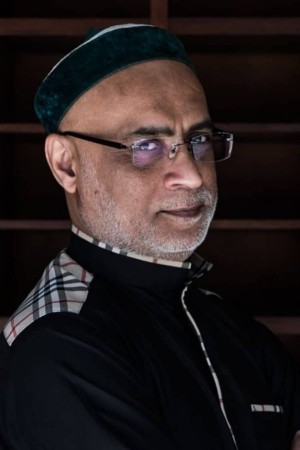The principles of freedom of religion are upheld inconsistently across various parts of Europe. So says Mufti Nedzad Grabus, Co-Chair of the Muslim Jewish Leadership Council (MJLC), and Mufti of Slovenia’s Islamic Community. In theory, says the Mufti, every European can say that there is a law in their country that protects religious values. Yet in practice, a look at countries like France (whose anti-separatism bill, critics say, is aimed at suppressing Islam) and Switzerland (whose population recently voted for a ban of face coverings in public, including those worn by Muslim women) has highlighted a growing schism between freedom of religion in principle and freedom of religion in practice.
Under the guise of defending European values, some nations are attacking Muslim culture (through “burqa bans”, circumcision bans and bans on ritual slaughter) and, in so doing, forsaking meaningful efforts to create cohesion among their increasingly diverse communities. This results in two major issues that need urgent redress at the European level, says the Mufti. The first is the problem of hate speech, which predominantly thrives online, against followers of minority European religions like Islam and Judaism. The second relates to limitations being placed on minorities who want to practice their religious beliefs.

It is no secret, says the Mufti, that across Europe, politicians have their own agendas for Muslims. “In some places, they actively work to support initiatives that counter hate speech, or protect freedom of religious expression. In other places, they choose to be blind to issues that disproportionately affect Islam, or other minority religions,” says Grabus.
According to the Mufti, a major part of the challenge is the underrepresentation of Muslims in mainstream society, a fact borne out by a 2020 study published by Cambridge University Press, which highlighted a disproportionally low representation of Muslim communities in Europe. “This is the reason behind the lack of Islamic perspectives in the types of repressive legislation now coming into force in some European countries”, says the Mufti. “Muslims need to be able to amplify their legislative voices. That is a crucial issue. Because, in a number of European countries, they live in marginalized areas. I don’t just mean physical marginalization. It’s much broader than that. There are very few Muslim intellectuals contributing to the discussion on how to develop legislation that respects the rights of all people.”
The dearth of influential Muslim figures in academia, politics and culture in Europe, translates to low levels of representation for Muslim priorities in European legislation, adds Grabus. And the only way this can be resolved is in partnership with stakeholders from Europe’s majority religion: Christianity. “We can’t address any serious religious rights issues in Europe without consulting with our Christian friends in the Catholic and Protestant Church. We need their help.”
Icons like Yusuf Islam (the singer formerly known as “Cat Stevens”) and Mohammed Ali (the boxer formerly known as “Cassius Clay”) are often cited as models of how to translate global recognition into a greater understanding of Islam. However, these conversions happened nearly half a century ago. And the stars’ message of peaceful Islam has become much harder to recall than the present narrative of Islam as a security threat, propagated in parts of present-day Europe. This has resulted in the religion of Islam being framed through the singular lens of a “security issue”. A disastrous narrative, says the Mufti, as it needlessly creates enmity amongst the very societal groups governments must harmonize, if they are to achieve social cohesion.
Minority religious groups – especially Islam – need to engage the right stakeholders, says Grabus. The right partner is also one who can command an audience. Drawing an analogy between the standing of various religions with the geopolitical power of EU member states, the Mufti says, “There are countries which, while they are part of the European Union, wield little to no influence. And the reverse is also true. When one of the major Western European powers makes a statement, everybody pays attention. But if somebody from the eastern part of Europe makes a similar statement, or even says the same thing first – no one listens.”
This is not fair. But, says the Mufti, such is life. “It is why we are very thankful to our colleagues from the Jewish side of the MJLC, and also to our Christian brothers. The believers, not the politicians. Our partners in the MJLC and members of the Catholic and Protestant Churches have shown that they support dialogue, integration and understanding.”
The Mufti is skeptical of politicians who center their rhetoric around claims of protecting Christian values, while advocating for practices antithetical to the teachings for that religion. “They say they want a revival of Christian values, yet they speak very negatively about others. We have the same problem in Islam,” adds Grabus. “There are those who claim to be Muslim, yet they misuse the religion for their own selfish purposes. The weaponization of religion, in any context, is very problematic.”
Education, says the Mufti, especially in schools, is the solution to the rising tension between followers of faith traditions and an increasingly secular European outlook that is pushing a growing body of legislation to curb religious freedoms. Last December, the European Court of Justice ruled that member states can do away with a religious exemption to ban killing without stunning – clearly interfering with the freedom of Muslims and Jews to manifest their religion through ritual slaughter practices. “Education can help us understand that tolerance and social harmony does not come from creating “inferior” and “superior” groups. It can help us realize that, when we speak against the Other – against Jews, against Muslims, against black people, against different subjects…we create perceptions about the Other that actually lead to tragic consequences and deep divisions in society. For this reason, we need to redefine what is happening in European schools”
Mufti Grabus believes that Europe is still a place where people of different faiths can express their religion. “But we need to be cautious about changing legislation,” he says. “And singling out one religion for a restriction on their rights to act in accordance with their beliefs.” Looking ahead, the hope remains that all of Europe can learn to move beyond mere tolerance of the Other to a positive embracing of difference. That is what will sustain authentic co-existence.
By Iris Jumbe


